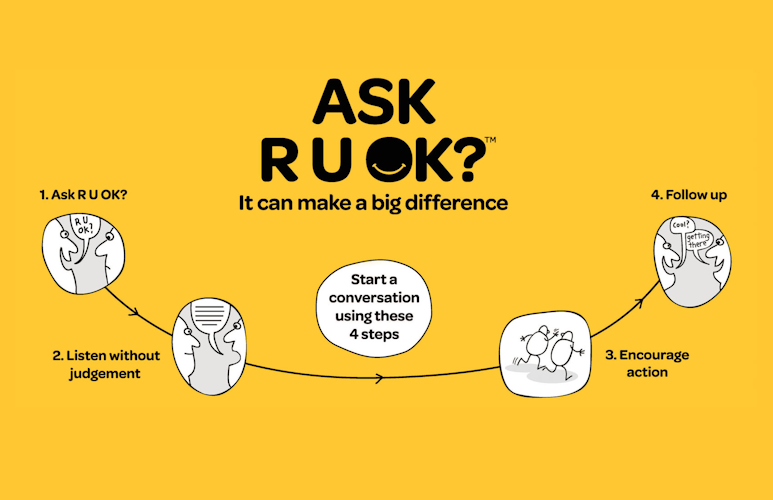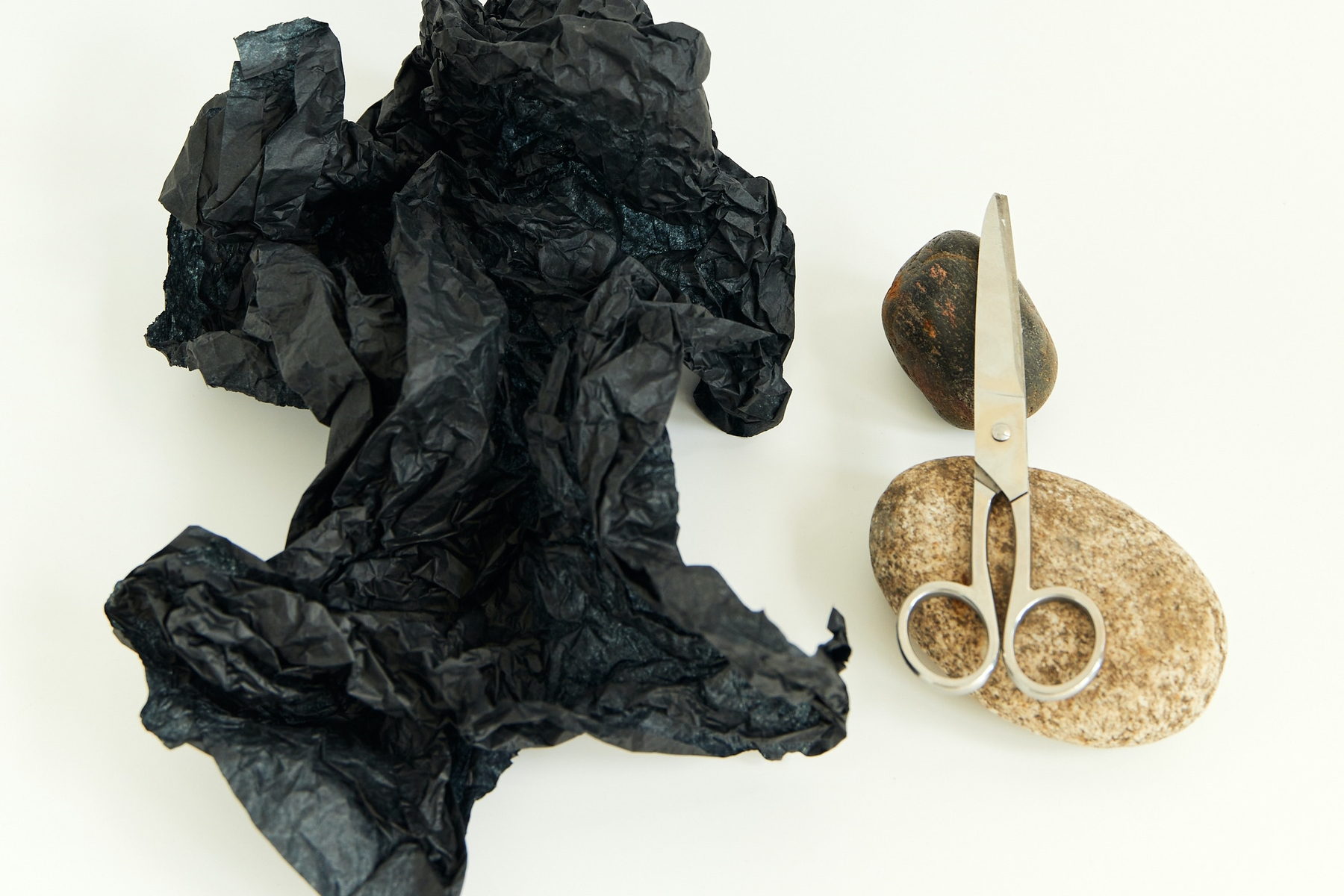
R U OK Day – Talking About It and What Happens When They Say ‘No’
No. I’m not OK.
Every September our social media feeds, workplaces, and schools are overwhelmed with people asking “R U OK?” While it is a beautiful sentiment and showing care and concern for others is powerful and positive, it sometimes falls a little short. While R U OK day has led to important breakthroughs for many people (and very likely saved lives) too many people nod and say, “Yeah, I’m okay”, when they’re not.
And when someone does say they are not okay, what do we do? The official R U OK Day site says, ‘R U OK? Day is our national day of action dedicated to reminding everyone to ask, “Are you OK?” But what matters most in that sentence is not the question. It’s the word “action”.
Having the Conversation
From a study of 2000 adults, the Mental Health Foundation found that an adult will say “I’m fine” 14 times a week, but only 19% will actually mean it. We are conditioned that it’s easier to say this than how we really feel. Often this is even more true of teenagers. We don’t really want to share all our problems and that’s okay, but does it mean we should stop asking if people are, really, okay? Of course not. What it does mean is that we might be able to learn to ask better. And listen better.
A few years ago, I was invited to speak at a school about a week after one of their students had chosen to take their life. I spoke with students and staff, spent time working with the school’s counsellors. And then I spoke to the parents.
They all wanted to know how to help with someone who is depressed, anxious, self-harming, or having suicidal thoughts, and this is what I suggested:
Tip 1: We use dollars to pay for things in our economy, attention is what we pay to build good relationships. Spending time in a relationship is critical for our children, friends, and employees to be willing to talk with us, trust us, and disclose their struggles to us.
Tip 2: If you sense someone may not be okay, tell them that. Be up front. Here’s how: “I’ve seen how hard things have been lately. You’ve withdrawn. Things seem rough.” “You seem to be really struggling lately. I’ve been trying to reach you but you seem to really feel like you want to be alone.” There’s an old saying that “if you can name it, you can tame it.” What we’re trying to do is to put a name to the emotion that might be dragging someone down. When we do that, they feel understood.
Tip 3: Don’t try to fix things. Sometimes that’s not going to actually be helpful. Instead, name the emotion and then sit with them in their struggle. Let them open up. Listen. That’s it. If someone is not okay, we can’t fix them. But we can suffer with them. We can see they’re struggling and step into that struggle with them. That’s true compassion. And that’s how we truly help.
Tip 4: Tell them you care about them. Relationships are at the heart of wellbeing. When someone doesn’t feel “okay”, they often feel unworthy. Reassurance that they are valued is key. The added confirmation that they matter to you can be pricelessly affirming. It assures them of their worth.
What to Do if Someone Isn’t Okay
Whether it’s a colleague, a student, or a family member, when someone does say “no, I’m not okay,” take it seriously, ask questions, and find out if they need urgent help.
The next step could be:
- Say thanks. “I really appreciate you letting me know.”
- Validate. “Things can be really rough sometimes.”
- Listen. “I’m here and I’m listening.”
- Offer support. “If there were anything at all that I could do, what would it be?” or better yet, “I think I can help. Are you open to…?”
If you think there might be something of higher concern, ask the question: “Have you been thinking about self-harming or suicide?” Many of us will shy away from conversations like this. But asking those kinds of questions doesn’t increase the risk of suicide – in fact, they can actually help someone feel less distressed. It’s ok to ask.
If they say yes, drive them to your nearest Emergency Department and tell them you have a child who is talking about suicide. Don’t wait. Just go.
And don’t wait until R U OK day to ask.

Important Numbers
- beyondblue on 1300 22 46 36 for information about mental health
- Lifeline on 13 11 14 or the Suicide Callback Service on 1300 659 467 for suicide and crisis support
- 000 for emergencies
R U OK Day is a great way to create awareness and representation but it shouldn’t be the only time or way to talk about these things. Be present, ask how people really are, and know it’s okay to say you’re not okay.



